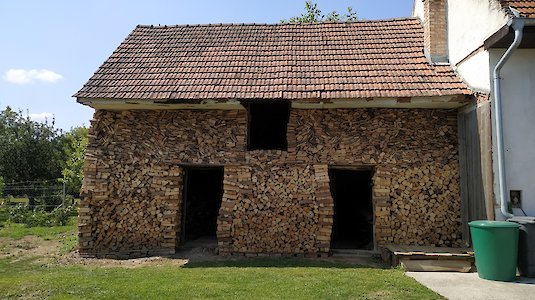The Austrian Ecolabel for Sustainable Real Estate Funds - a review
The webinar started with an overview of Sustainable Real Estate Funds and focused in particular on the key characteristics of a sustainable property such as careful use of resources and land, reduction of emissions, best possible functionality and other features.
Report prepared by Susanne Hasenhüttl and Katharina Muner-Sammer, ÖGUT
While in the past it was mainly a few pioneers who pushed sustainable investments, the topic has now entered the mainstream. The financial industry is increasingly being asked to do its part to address the climate crisis by channeling money towards sustainability and financing green projects.
As the construction and building sector is responsible for about 38% of global CO2 emissions [Cf. UNEP, 2020 GLOBAL STATUS REPORT FOR BUILDINGS AND CONSTRUCTION], it is clear to see the great importance of this sector in achieving climate protection goals.
The question now arises as to when real estate and real estate funds are "green" and considered a sustainable investment? The Austrian Ecolabel for Sustainable Financial Products (UZ 49) was developed as early as 2004 to provide investors with guidance on this and to create confidence in a financial product.
Since 2016, sustainable real estate funds can also be awarded the Ecolabel. On this topic, ÖGUT organized a webinar on July 14 on behalf of the Ministry of Climate Protection entitled "Green Money for Green Investments. The Austrian Ecolabel for Sustainable Real Estate Funds".
Josef Behofsics welcomed the participants of the online event on behalf of the Ministry of Climate Protection and handed over to Susanne Hasenhüttl from ÖGUT, who guided through the event. Katharina Muner-Sammer, also from ÖGUT, started with an overview of Sustainable Real Estate Funds and focused in particular on the key characteristics of a sustainable property such as sparing use of resources and land, reduction of emissions, best possible functionality and other features. Subsequently, the various sustainability certificates for buildings and their application in Europe were discussed. It became apparent that klimaaktiv - the building assessment system of the Ministry of Climate Protection - is the most widely used on the Austrian market.
Inge Schrattenecker, ÖGUT and program manager of the klimaaktiv program for building and renovation, showed which requirements a building has to fulfill in order to be considered "klimaaktiv". Klimaaktiv, as a building rating system of the Federal Ministry for Climate Protection (BMK), offers a catalog of criteria for energy-efficient and sustainable buildings. If a building meets the klimaaktiv-MUST criteria (klimaaktiv-Basiskriterien), it is eligible as an investment object for a sustainable real estate fund. Raphael Fink from the Ecolabel team at VKI then explained what other criteria a real estate fund must meet in order to be awarded the Austrian Ecolabel. As a very well-established and credible standard for sustainable financial products, the Ecolabel provides orientation for investors in Austria. Currently, there are five real estate funds that bear the Austrian EcoLabel. In his presentation, Raphael Fink also referred to the future challenges in terms of content (keyword EU taxonomy). He does not see any difficulties in this respect at the level of project financing, since the taxonomy conformity of the klimaaktiv basic criteria will be ensured.
The challenges associated with the conception or launch of an eco-label-compliant real estate fund were shown in two further presentations: Peter Karl, CEO of ERSTE Immobilien KAG, presented the ERSTE RESPONSIBLE IMMOBILIENFONDS, a sustainable mutual fund. Peter Karl was convinced that a property without "sustainability" will no longer be saleable in the future. A few years ago, however, this still required a great deal of convincing in the real estate industry. Christian Schön, Managing Director of AURIS Immo Solutions GmbH, a manager of sustainable real estate special funds, agreed with this. Christian Schön presented two special funds for institutional investors and emphasized the importance of renovations for climate protection, but also the hurdles that have to be overcome in order to make existing buildings sustainable.
The numerous questions asked by the participants demonstrated the high level of interest in the event.
At the end of the webinar, Josef Behofsics referred to the continuation of the webinar series on the eco-label for sustainable financial products in the fall. More information will follow shortly.
The individual presentations are already available for download on the ÖGUT website: https://www.oegut.at/de/events/2021/06/uz-webinar-immo.php
